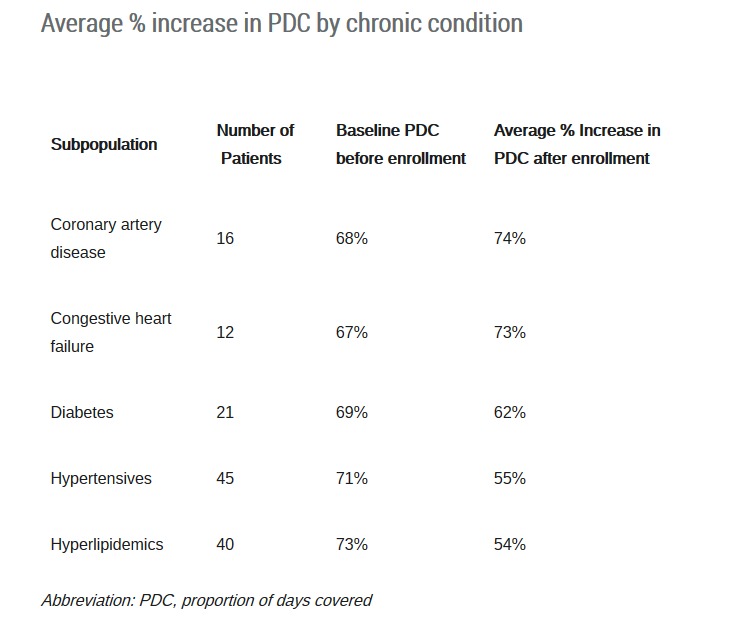
Back in March, we talked about how the role of the pharmacist in the healthcare ecosystem has been expanding over the past decade. In addition to simple medication fulfillment, pharmacist now complete crucial patient aftercare, education, and vaccination administration. Many believe as the role of the pharmacist expands, they could become the key to reducing all kinds of healthcare costs. Here are three ways pharmacy is helping save costs for healthcare.
Reducing Healthcare Costs Through Hospital Readmissions
The Affordable Care Act has put some strict deadlines on 30-day readmission rates, in the form of financial penalties. As many healthcare systems panic, what they don’t realize is that coordinating with pharmacists may be a saving grace. The American Pharmacist Association predicts with the new focus on readmissions rates, “medication therapy assessment and medication reconciliation” by pharmacists will play a crucial role in helping hospital avoid penalties. According to their findings “The investigators reported that patients who received medication therapy assessment and reconciliation had decreased readmission rates at 7, 14, and 30 days postdischarge. Financial savings for Group Health per 100 patients who received medication reconciliation were an estimated $35,000, translating to more than $1,500,000 in savings annually. ”
Medication Adherence and Reducing Healthcare Costs
Pharmacists play a key role in increasing medication adherence rates, which in turn, improves patient care and general healthcare costs. From proving education to helping patients understand their medications, pharmacists are crucial providers of care. Medication adherence has becoming a tricky subject in the healthcare world with between 20% to 50% of patients considered to be non-adherent. Non-adherence can result in more frequent ER and hospital visits and an increase general healthcare costs. Pharmacists have become major players in helping increase medication adherence rates though through specialty education programs, ensuring patients refill and take medications on time, and even providing medication therapy. Fierce Health reported that a “2009 study of Medicaid patients with congestive heart failure found that patients who adhered to medications had fewer hospitalizations, fewer visits to the emergency department, and overall health care costs that were 23% lower than those of non-adherent patients.”
A very interesting article published by the Modern Medicine Network reported that Wagner Pharmacy, an Iowa pharmacy group, developed a clinical program devoted to improving patient outcomes. The program, MedAssist, utilizes four tools: “industry data on the effectiveness of medication synchronization and adherence programs, ongoing staff and patient education, one-on-one patient interviews with a clinical pharmacist, and adherence packaging that simplifies medication regimens.” Clinical pharamcists works one-on-one with patient to help ensure they understand their medications and even help to ensure they take them at the correct times and get proper refills. The individualized care the pharmacist is able to give, that often a doctor may not have time for, is crucial to improving medication adherence.
The results of the program are staggering. Wagner “studied 50 patients who took five or more medications for chronic illness and had been enrolled for 6 months or longer” in the MedAssist program and MedPack strip-packaging program. They “evaluated the baseline proportion of days covered (PDC) to establish patient adherence prior to initiation of MedAssist and then evaluated each participant’s PDC during the first six months of participation and compared the difference between these values.” You can see the increase in medication aherence below.

The Wanger survey shows that pharmacists may hold the key to helping increase medication adherence and in turn reduce general healthcare costs, whether that is through readmission rates or general patient outcomes.
Collaboration
As many healthcare organizations struggle to reduce healthcare costs, many are beginning to understand that partnering with pharmacies and pharmacists could be their key to success. A 2013 survey published by Clinical Advisor found that 70% of people in the United States “found it difficult get health care during weekends, evenings and holidays.” This example shows how pharmacies, who are normally located near where people work/live and are often much more accessible on weekends and evening, can help fill gaps in healthcare. By partnering with pharmacists in their network and helping construct crucial education and medication management programs, healthcare organizations will be taking a giant step towards reducing healthcare costs.
Fierce Health reported on a case at Lancaster General Health, a 623-licensed bed, nonprofit system in Pennsylvania. It had the “pharmacy department work with clinicians on standardization and utilization efforts. Lancaster General pharmacists, cardiologists, emergency medicine providers and hospitalist physicians engaged in an education campaign about the cost impact of available alternative therapies and saved the hospital about $130,000 a year, according to the guest commentary by Jill Rebuck, PharmD, director of Pharmacy Services at Lancaster General.”
Increasing Medication adherence and reducing hospital readmission are two key ways many organizations are already looking to pharmacies for help. Do you think fostering collaboration by getting both pharmacists and physicians to work together on patient outcomes could be the next big step to reducing healthcare costs? Let us know what you think!
Up Next- Free White Paper: Comparing the 5 Big Healthcare Organizations
